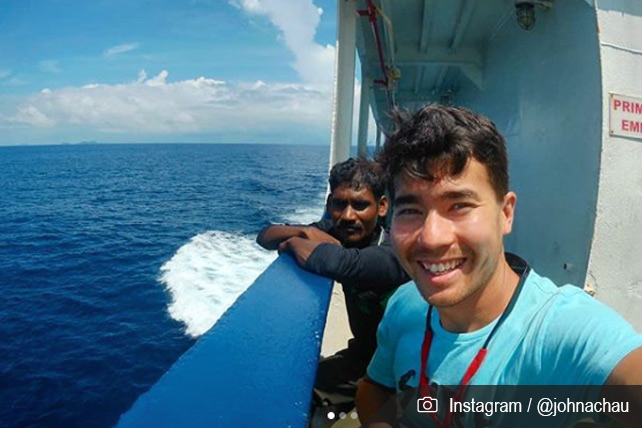After numerous attempts to reach an isolated tribe with the Gospel, American missionary John Chau has reportedly been killed. The 26-year-old man from Washington had made several trips to the Andaman and Nicobar islands, part of the North Sentinel Islands chain located 850 miles east of the Indian subcontinent. According to fishermen who helped Chau reach the area, tribespeople attacked him with arrows and later dragged his body with a rope around his neck.
Chau had a tourist visa, but one police official says, “We refuse to call him a tourist” because “he came with a specific purpose to preach on a prohibited island.” The missionary hadn’t told authorities why he was there.
Sentinelese Tribe Are a Protected People
Only a few dozen of these tribespeople exist, experts estimate. Population surveys must be conducted from afar because contact with the tribe is illegal. The Sentinelese are completely isolated from civilization, making the hunter-gatherers extremely vulnerable to disease. Chau’s visit, in fact, could mean they’ve “just been infected by deadly pathogens to which they have no immunity, with the potential to wipe out the entire tribe,” says Survival International’s Stephen Corry.
Chau’s death was a tragedy that “should never have been allowed to happen,” Corry adds. The tribe has “shown again and again that they want to be left alone, and their wishes should be respected.” Most of the tribespeople died after Britain’s colonial occupation, he says, “so the Sentinelese fear of outsiders is very understandable.” In 2006, tribe members killed two Indian fishermen whose boat drifted onto their shore.
Indian law protects the Sentinelese, making it illegal to interact with them, trespass on the islands, or even take photos or videos of them. The Sentinelese can’t be arrested or prosecuted, making Chau’s murder “a difficult case for the police,” one journalist notes. The local fishermen who helped the missionary reach the islands have been arrested.
Ministering to the Tribe Was Chau’s “calling”
According to Neil MacLeod, who met Chau on a flight, the missionary “had a very clear sense that he wanted to bring the word of God to those unreached people.” MacLeod adds, “He had a real profound sense of calling.”
Chau spoke of working as a paramedic in disaster zones, MacLeod says, and “was well aware of the dangers” of preaching in remote areas of India.
Based on the fishermen’s reports, police believe the missionary was killed on November 17. “We have a team out in the water for reconnaissance and to strategize how to recover his body,” says one official. A police statement indicates Chau tried to befriend the tribe by offering gifts such as a medical kit, a football, fishing line and scissors.
Persecution Is on the Rise in India
Chau’s death comes during a time of increased persecution in India. The Bharatiya Janata Party, which assumed power in 2014, reportedly urges Hindi radicals to persecute religious minorities. The Evangelical Fellowship of India says cases of Christian persecution rose from 147 in 2014 to 351 in 2017.
The isolated Sentinelese, of course, aren’t aware of the Indian government’s workings. But Chau’s death raises awareness of a troubling pattern. “Every day, new reports of persecution are being documented in India,” says William Stark of International Christian Concern. “Many Christians fear this may be the new normal for their community,” he says, adding that India must “take steps to counter the growing wave of intolerance and violence.”

